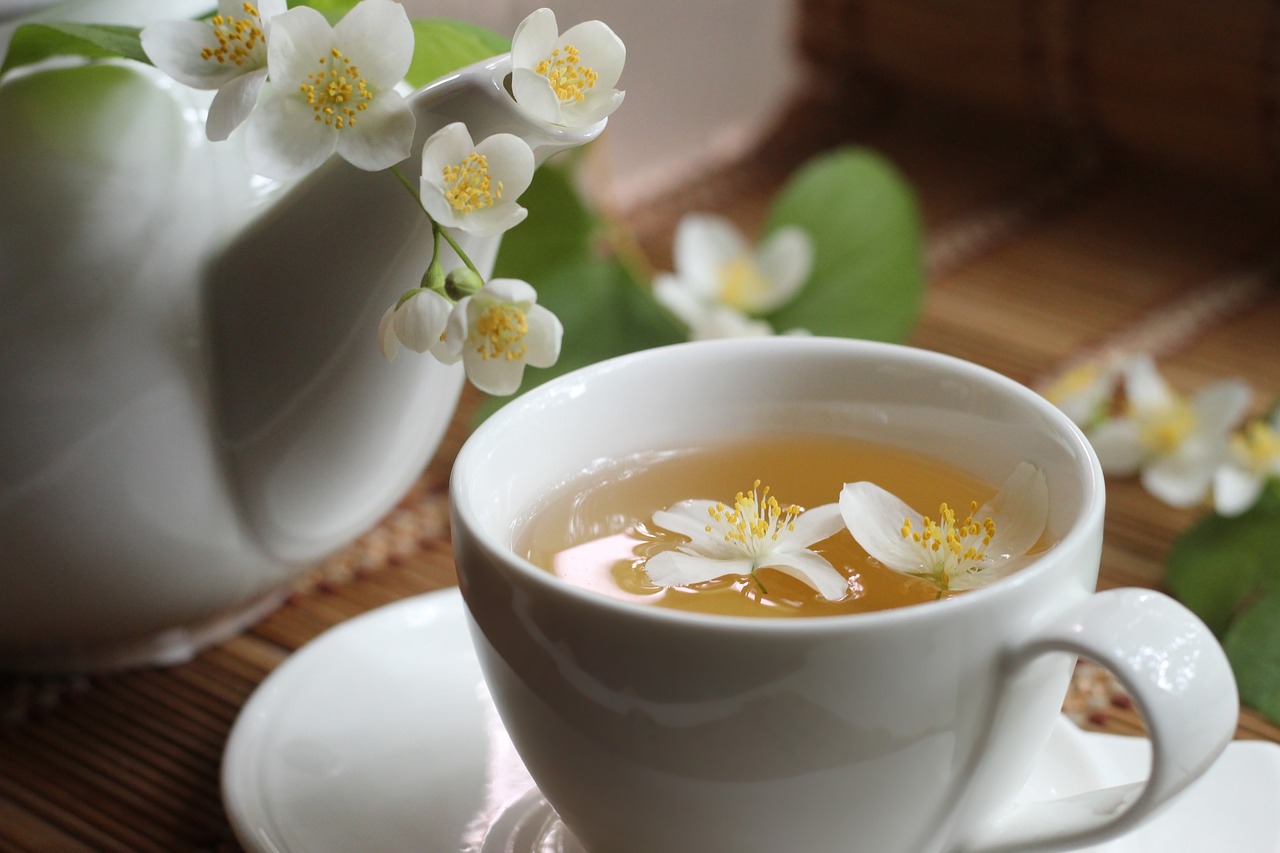Jasmine tea, known for its delicate fragrance and soothing taste, has been enjoyed for centuries for its potential health benefits. From antioxidant properties to stress relief, jasmine tea offers numerous reasons to make it a regular part of your beverage rotation. In this comprehensive guide, we’ll explore nine compelling reasons why jasmine tea is good for you.
Rich in Antioxidants
Jasmine tea contains high levels of antioxidants, primarily polyphenols, which help protect the body from free radical damage. Free radicals are unstable molecules that can cause oxidative stress and contribute to aging and various diseases. Drinking jasmine tea regularly may help combat oxidative stress and promote overall health.
Supports Heart Health
The antioxidants found in jasmine tea, such as catechins, may help improve heart health by reducing inflammation and lowering LDL (bad) cholesterol levels. By promoting healthy blood flow and reducing the risk of plaque buildup in the arteries, jasmine tea may support cardiovascular function and reduce the risk of heart disease.
May Aid in Weight Management
Jasmine tea is naturally low in calories and can be a refreshing alternative to sugary beverages. Additionally, some research suggests that the catechins in jasmine tea may help boost metabolism and promote fat oxidation, making it a potential aid in weight management when consumed as part of a balanced diet and healthy lifestyle.
Enhances Digestive Health
The gentle floral aroma and soothing properties of jasmine tea may help promote digestion and alleviate gastrointestinal discomfort. Drinking jasmine tea after meals can aid in digestion by relaxing the digestive tract and reducing bloating and indigestion.
Calms the Mind and Relieves Stress
Jasmine tea is renowned for its calming properties and has been used in traditional medicine to promote relaxation and reduce stress. The delicate aroma of jasmine flowers can have a soothing effect on the mind, helping to alleviate tension and promote feelings of tranquility and well-being.Boosts Immune Function
The antioxidants and polyphenols in jasmine tea have been shown to have immune-boosting properties, helping the body defend against infections and illnesses. Drinking jasmine tea regularly may strengthen the immune system and reduce the risk of common colds and infections.
Supports Oral Health
The catechins and fluoride found in jasmine tea may help promote oral health by inhibiting the growth of bacteria that cause cavities and gum disease. Additionally, the mild antibacterial properties of jasmine tea can help freshen breath and promote overall oral hygiene.
May Improve Cognitive Function
Some research suggests that the antioxidants in jasmine tea may have neuroprotective effects, helping to improve cognitive function and reduce the risk of age-related cognitive decline. Regular consumption of jasmine tea may support brain health and enhance memory and concentration.
Provides Hydration and Refreshment
Last but not least, jasmine tea is a hydrating and refreshing beverage that can be enjoyed hot or cold throughout the day. Staying properly hydrated is essential for overall health, and replacing sugary drinks with jasmine tea is a delicious way to meet your fluid needs while reaping the benefits of its antioxidant-rich properties.
FAQs About Jasmine Tea
Is jasmine tea caffeinated?
Yes, jasmine tea typically contains caffeine, although the exact amount can vary depending on factors such as brewing time and the tea-to-water ratio. However, jasmine tea generally contains less caffeine than coffee and black tea, making it a suitable option for those looking to moderate their caffeine intake.
Can jasmine tea help with sleep?
While jasmine tea does contain caffeine, the calming aroma of jasmine flowers may have a soothing effect on the mind and help promote relaxation. However, individuals sensitive to caffeine may want to avoid drinking jasmine tea close to bedtime to prevent sleep disturbances.
Is jasmine tea safe during pregnancy?
Moderate consumption of jasmine tea is generally considered safe during pregnancy. However, it’s essential to consult with a healthcare provider to determine individual dietary recommendations and ensure that jasmine tea consumption does not exceed recommended caffeine limits.
How should jasmine tea be stored to maintain freshness?
To preserve the delicate flavor and aroma of jasmine tea, store it in an airtight container away from light, heat, and moisture. Avoid storing jasmine tea near strong-smelling foods or spices, as it can absorb odors easily.
Can jasmine tea be enjoyed with milk or sweeteners?
While jasmine tea is traditionally enjoyed on its own, some people may choose to add milk or sweeteners such as honey or sugar to enhance its flavor. However, keep in mind that adding milk or sweeteners may alter the taste profile and potentially mask the delicate floral notes of jasmine tea.
How is jasmine tea made?
Jasmine tea is typically made by scenting green tea leaves with jasmine flowers. The tea leaves are harvested and then layered with freshly picked jasmine flowers, allowing the leaves to absorb the floral aroma. After the scenting process is complete, the jasmine flowers are removed, leaving behind fragrant jasmine-scented tea leaves ready for brewing.
Can jasmine tea be enjoyed by children?
Jasmine tea is generally safe for children to consume in moderation, although parents may want to monitor their caffeine intake, especially in younger children. Opting for decaffeinated jasmine tea or diluting it with water can be a suitable option for children who are sensitive to caffeine.
Conclusion
Jasmine tea offers a delightful combination of aroma, flavor, and potential health benefits that make it a beloved beverage worldwide. From its antioxidant properties to its soothing effects on the mind and body, jasmine tea provides numerous reasons to include it in your daily routine. Whether enjoyed hot or cold, jasmine tea is a refreshing and healthful choice that can be savored throughout the day.
- Profhilo Treatment Near Selhurst, Surrey - May 31, 2025
- THC Seltzers And How To Enjoy Them Responsibly - May 30, 2025
- Secondary Partners: Navigating Non-Primary Roles In Polyamory - May 29, 2025

